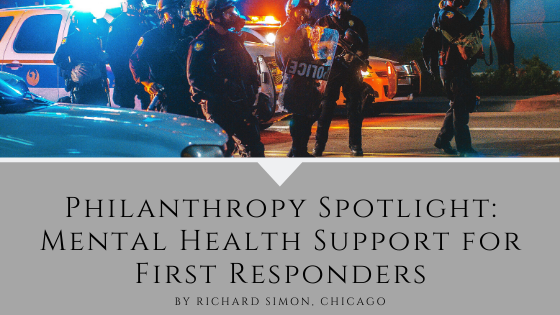
I work with and have contributed to several organizations that support law enforcement officers and their families. I believe in supporting the men and women who keep us safe and provide such outstanding service to their communities. I recently read an article in Forbes that said, “In 2017 and 2018, more police officers died by suicide than died in the line of duty.” It got me thinking about all of the stressors and traumatic incidents that officers face on a regular basis. I started wondering what organizations exist to provide mental health support to officers. Here are a few resources I found that exist to provide support to first responders and, in some cases, specifically law enforcement officers.
Blue H.E.L.P.
Blue H.E.L.P. is a nonprofit organization that collects data on law enforcement suicide and provides support to families following the death of their loved one. Their mission is “to reduce mental health stigma through education, advocate for benefits for those suffering from post-traumatic stress, acknowledge the service and sacrifice of law enforcement officers we lost to suicide, assist officers in their search for healing, and to bring awareness to suicide and mental health issues.” Blue H.E.L.P. works in connection with 1st Alliance, a volunteer-staffed organization that provides a unified global support database of resources that allow first responders to seek spiritual, emotional, and financial support confidentially. They also collect data about traumatic-stress events and suicide.
COPLINE
(1-800-267-5463)
This resource is a 24-hour international hotline for law enforcement officers, which is manned by retired law enforcement officers. Officers struggling with mental health can talk to someone who has been in their shoes. Both active and retired officers and their families can call the hotline, which is strictly confidential, and the caller can remain anonymous without fear of repercussions for calling.
The Code Green Campaign®
Code Green is a mental health education and advocacy organization oriented towards first responders. Their mission is one of awareness, education, and prevention. They provide training for first responders about self-care and taking care of one another while advocating for change in how first responder agencies address mental health issues. They seek to end the stigma that keeps first responders from reaching out for help and admitting there is a problem.
Safe Call Now
(206-459-3020)
Like COPLINE, Safe Call Now is a hotline staffed by current and retired law enforcement officers, mental healthcare providers, and public safety professionals familiar with the profession. This hotline is a 24-hour crisis referral service, which is entirely confidential.
These are just a few of the nonprofit organizations and resources available to law enforcement officers and their families. If you or someone you know is struggling with mental health concerns, please reach out for help. No one needs to fight alone, and there are free, confidential, anonymous resources available.

